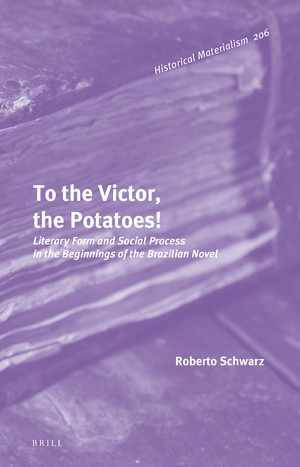Historical Materialism Book Series, Volume: 206
Roberto Schwarz
Literary forms travel from core countries to the periphery of capitalism, where they are adopted under social conditions that differ from those in the countries of their origin. Besides being inevitable, the resulting maladjustments lead to new and original aesthetic problems, presenting to the reader the symptoms of the world’s complexity. When properly worked through, these allow for the rise of world-class art, as in the case of the great Brazilian novels by Machado de Assis.
First published in Portuguese in 1977 as Ao vencedor as batatas: Forma literária e processo social nos inícios do romance brasileiro by Duas Cidades/Editora 34, ISBN 978-85-7326-169-2, and presented here in a new English-language translation, To the Victor, the Potatoes! is a major work of one of the most significant Marxist literary critics of our time.
Biographical note
Roberto Schwarz is a Brazilian literary critic. His works constitute one of the major bodies of Marxist literary scholarship of the twentieth century.
Readership
Marxists, literary critics, students of Brazilian literature and cultural history, those interested in the theory of combined and uneven development, scholars of Machado de Assis, literary historians, Latin Americanists.
Table of contents
Reading the Truth of Falseness: An Introduction
Acknowledgements
A BBC Interview with Roberto Schwarz, on the Subject of Machado de Assis
1 Misplaced Ideas
2 The Importation of the Novel and Its Contradictions in Alencar
3 Paternalism and Its Rationalisation in Machado de Assis’ Early Novels
1 General Considerations
2 A Mão e a Luva
3 Helena
4 Iaiá Garcia
Bibliography
Index


